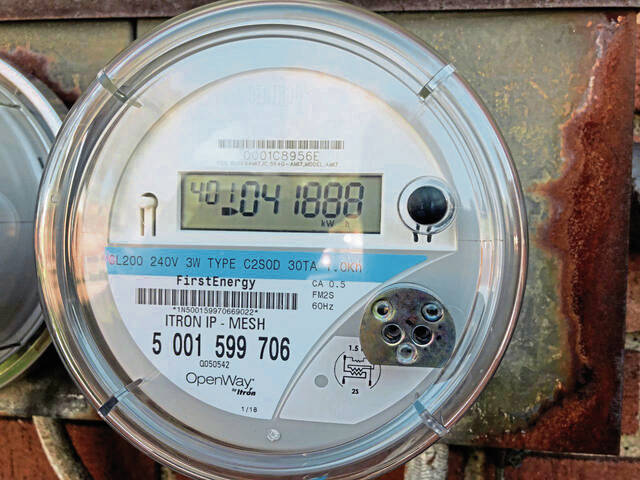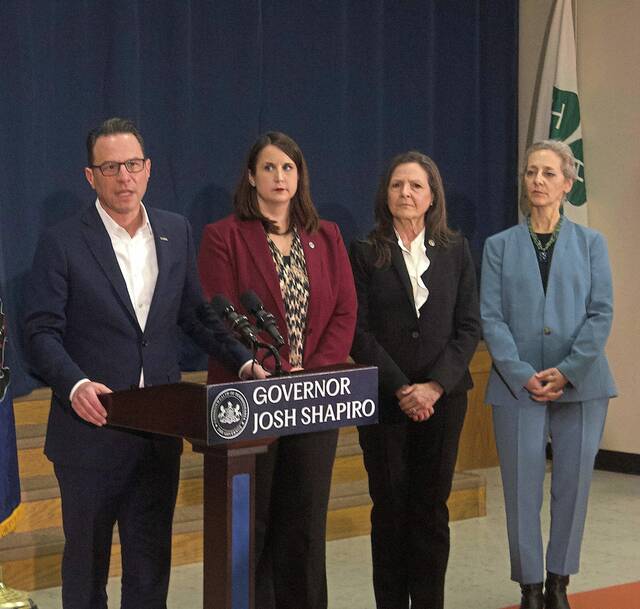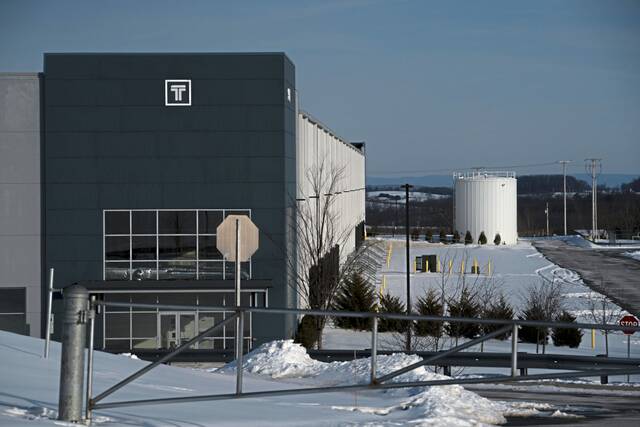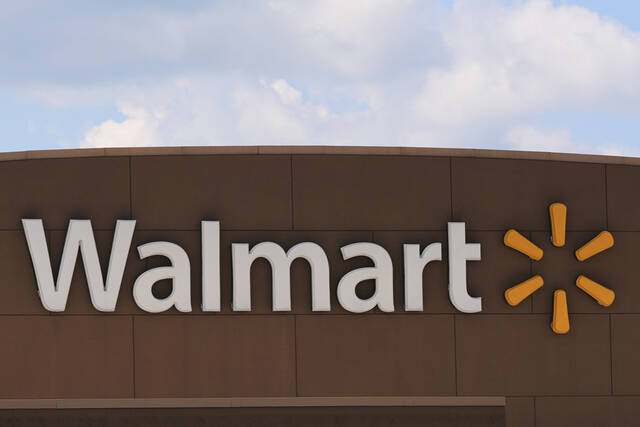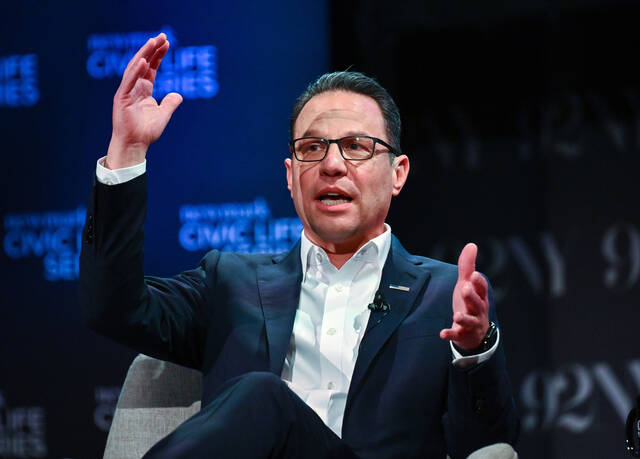Tiffany Nix, superintendent of Leechburg Area schools, watched in frustration for years as hundreds of thousands of dollars went out the doors of her small, cash-strapped district with families who enrolled their children in cyber charter schools.
“We were paying $13,000 to $24,000 a year for each of them. It comes to hundreds of thousands of dollars a year out of a budget of $15 million,” Nix said.
Last year, Leechburg settled on a new option and contracted with the Seneca Valley School District to launch its own cyber academy at a cost of $3,470 per student.
At the Jeannette City School District, which piggybacked with Hempfield Area’s cyber academy, tuition is even lower. Jeannette pays $1,500 a year for mainstream students who enroll in the local district’s cyber academy, business manager Paul Sroka said.
Nonetheless, districts must budget hundreds of thousands of dollars — or millions, in some larger districts — to cover tuition for families who opt to place their children in one of 16 licensed public cyber charter schools in Pennsylvania.
The costs affect every public school, in small districts like Leechburg and Jeannette with about 900 students each, to Pittsburgh Public Schools, which has about 23,500 students.
“Charter schools in general are a tremendous drain on school budgets, and cyber charters are part of it,” said Ira Weiss, longtime solicitor for Pittsburgh Public. “What’s more troubling with cyber charters is they are making an enormous profit because the cost of operating one is very small compared to a brick-and-mortar school.”
Cyber costs
Tuition for Pennsylvania’s public cyber charter schools is based on a calculation that uses local district costs. Tuition for those schools varies from one district to the next and can range from about $7,500 a year for mainstream students to as much as $40,000 a year for special education students.
Figures like that have made state lawmakers and public education advocates take notice.
Susan Spicka is executive director of Education Voters of Pennsylvania, a nonprofit public education advocacy organization. Her group crunched the numbers and analyzed payments that each of the state’s 500 school districts paid to 16 public cyber charter schools in the 2016-17 academic year.
Then they ran the numbers a second time and used a formula capping payments at $5,000 a year for mainstream students and $8,865 for special education students. Education Voters of PA used those tuition estimates based on a study by the Pennsylvania Association of School Administrators.
In the end, they found districts could have slashed costs from the $463 million spent to $211 million, a savings of more than $250 million in a single year.
“We singled out cyber charter schools because it is such an egregious problem that lawmakers cannot wait any longer to address ,” Spicka said.
Public cyber charter schools don’t have to maintain sprawling campuses, costly transportation systems or spiraling legacy pension costs. At the same time, the online schools can spend millions of dollars on sophisticated billboard, internet and television advertising campaigns designed to draw in students.
“That’s wasting money that could be spent on students,” Spicka said.
Cyber charter operators argue that they are required by law to make families aware that school choice is an option.
Bills for change
Pennsylvania passed a cyber charter law in 2000, and it continues to be a topic of debate.
Last week, state Rep. Curtis Sonney, R-Erie, again introduced a bill that some say could sound the death knell for the state’s cyber charter schools. Acknowledging the growing proliferation of cyber academies within public schools, for those with such options, Sonney’s bill would cap tuition to cyber charter schools at the per-student tuition of district operated cyber academies.
This is the third time Sonney has introduced such legislation.
State Rep. Mike Reese, R-Mt. Pleasant, estimates he has introduced sweeping charter school reform bills at least five times. None gained traction. But Reese said he believes bills that target single issues might have better luck.
As chairman of the House education committee, Sonney has the authority to travel the state and visit district cyber academies as well as the approved cyber charters.
“We’re going to do our due diligence. We want to be sure (the district-run) cyber schools are offering a comparable education before we run the bill,” he said.
A companion bill in the state Senate suggests there is some support for change.
“The proposal would reflect positively on the Hempfield Area School District,” Hempfield Superintendent Tammy Wolicki said.
Hempfield, which operates its own cyber academy and enrolls 47 students fulltime in grade 6-12, still had to budget $2.2 million next year to cover 164 students who opted to attend another cyber charter.
Defending choice
Limiting payments to cyber charters would effectively put them out of reach for most of the students now enrolled, said Ana Meyers, executive director of the Pennsylvania Coalition of Public Charter Schools.
“Demand (for cyber schools) has increased over the years. Now, we have about 35,000 children enrolled in cyber charters. I think that says something. These parents are choosing to leave the district for a reason, and usually it is because the school does not meet their child’s need,” Myers said.
Norwin School District Superintendent William Kerr concedes there are valid reasons why families might prefer cyber schools, including serious medical issues and a preference for a cyber learning environment.
Nonetheless, Norwin tries to steer families to its district cyber academy where the cost for a fulltime student is $2,680 a year, compared to $9,741 a year for those who attend cyber charter schools.
That money belongs to students and their families as much as they do to their home school district, said Brian Hayden, CEO of the PA Cyber Charter School. Beaver County-based PA Cyber Charter is marking its 18th anniversary this year and serves about 11,000 students across the state.
“Our students, many of them and their families have chosen to leave public school not because this is a cyber school, but because they simply don’t feel they were being best served by the district they were in,” Hayden said. “I’m not sure how it benefits a student to stay in a district that is not the best for them.”
Much of the concern expressed by school districts stems from the way cyber charter schools are funded, said Jay Himes, executive director of the Pennsylvania Association of School Business Officers.
“This is all local dollars,” he said. “(The legislature) created the charter schools and said, ‘Hey, you fund it.’ ”
Public schools like the ones in Leechburg have a commitment to the communities and students they serve, Nix said.
“This is bankrupting our students and what we can give them,” she said. “We’re here to help them and when they go to these cyber schools, we have no control over them.”




